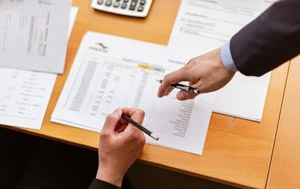
It’s that time of year again!! Income Tax Return fime!! Remember, the Tax Return is the set of documents you file with the IRS and State, and the Tax Refund is the money you receive if you overpay that year’s taxes. Every bankruptcy client is required to provide copies of the last 4 years of tax Returns (the documents) before filing for Bankruptcy protection.
Filing for bankruptcy is a significant financial decision, and understanding how tax refunds can impact the process is crucial. In Illinois, tax refunds are considered assets and can affect both Chapter 7 and Chapter 13 bankruptcy filings. Here’s a detailed look at how tax refunds play a role in the bankruptcy process:
Chapter 7 Bankruptcy
In Chapter 7 bankruptcy, most often, people who file can keep their assets. But, if you own more assets than you can protect, your assets are liquidated to pay off creditors. Tax refunds are included in this process, and the timing of your filing can make a big difference. Here are some key points to consider:
Timing of Filing: If you anticipate a substantial tax refund, it’s often advisable to file for bankruptcy after receiving the refund. This way, the refund is not part of your bankruptcy estate.
Exemptions: Illinois offers a “wildcard” exemption that allows individuals to protect up to $4,000 of personal property, including tax refunds. Properly utilizing this exemption can help safeguard your refund.
Strategic Planning: Adjusting your tax withholding before filing can help manage your refund. Lowering your exemptions and paying only the taxes you owe can increase your take-home pay and reduce the amount of refund subject to the bankruptcy estate.
Chapter 13 Bankruptcy
Chapter 13 bankruptcy involves a repayment plan over 3-5 years. Tax refunds are treated differently in this type of bankruptcy:
Repayment Plan: Your tax refund may be considered part of your disposable income, which could affect your repayment plan. It’s important to discuss this with your bankruptcy attorney to understand how your refund will be handled.
Exemptions: Similar to Chapter 7, the wildcard exemption can be used to protect part of your tax refund. However, the specifics of how this exemption applies can vary based on individual circumstances.
Practical Tips
Consult an Attorney: Early consultation with a knowledgeable bankruptcy attorney is essential to assess the best timing and strategy for your case.
Spend Wisely: If you receive a tax refund before filing, use it for necessary expenses like rent, mortgage, utility bills, and medical expenses. Avoid luxury purchases or preferential payments to specific creditors.
Filing for bankruptcy is a complex process, and the impact of tax refunds can vary based on individual circumstances. By understanding the rules and working an experienced Bankruptcy Attorney, you can navigate the process more effectively and protect your financial resources.
At BankruptcyLawChicago.com, we can help you do what is best for your situation, especially at tax time!
BankruptcyLawChicago.com



